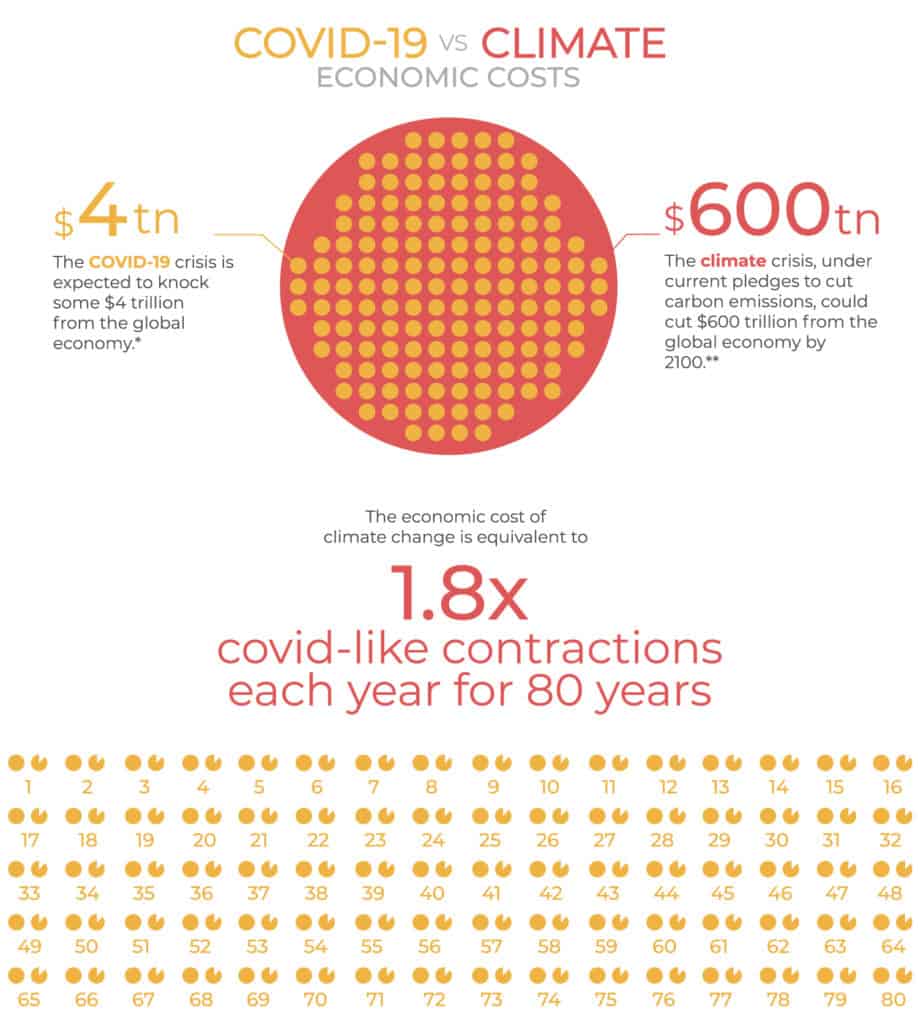As the world grapples with the social and economic fallout from the ongoing COVID-19 health crisis, evolving projections point to significant economic losses. The crisis may wipe out between $2-4 trillion from the global economy, possibly more if the crisis is not contained, the Asian Development Bank said. This is a devastating loss.
In the midst of this developing crisis, a new paper published in the journal Nature Communications points to a total global economic hit from climate change being comparable to twice the COVID-like contraction each year until 2100.
Under current global pledges to cut carbon emissions – pledges too weak to meet the goals of the Paris Agreement – the global economic hit from climate change would be $600 trillion by 2100. If countries fail to meet their targets and the world warms by 3-degrees Celsius or more by 2100, the resulting economic hit would be almost $800 trillion, according to the paper.
If the economic impact from current pledges is averaged out – $600 trillion over the next 80 years – it results in a $7.5 trillion drop each year until 2100. That number jumps to $10 trillion a year if countries fail to meet their pledges.
The Intergovernmental Panel on Climate Change, an intergovernmental body of the UN, has reported that the global economic damage of a 2-degrees Celsius increase in global average temperature is expected to cost a total of $69 trillion by 2100.
As we shape our economic policies based on the advice of scientific experts during this current emergency, we should not lose sight of the work ahead to mitigate the slower moving but significantly devastating climate emergency.

Mitigate your Climate Risk
Download the White Paper: Investing in a Climate Changed Economy
Forward-thinking investors that have a climate strategy, coupled with strong governance, accountability, and reporting, will get ahead of their competitors. This paper will help demystify climate change for the investor community and support decision-useful risk management and reporting.

